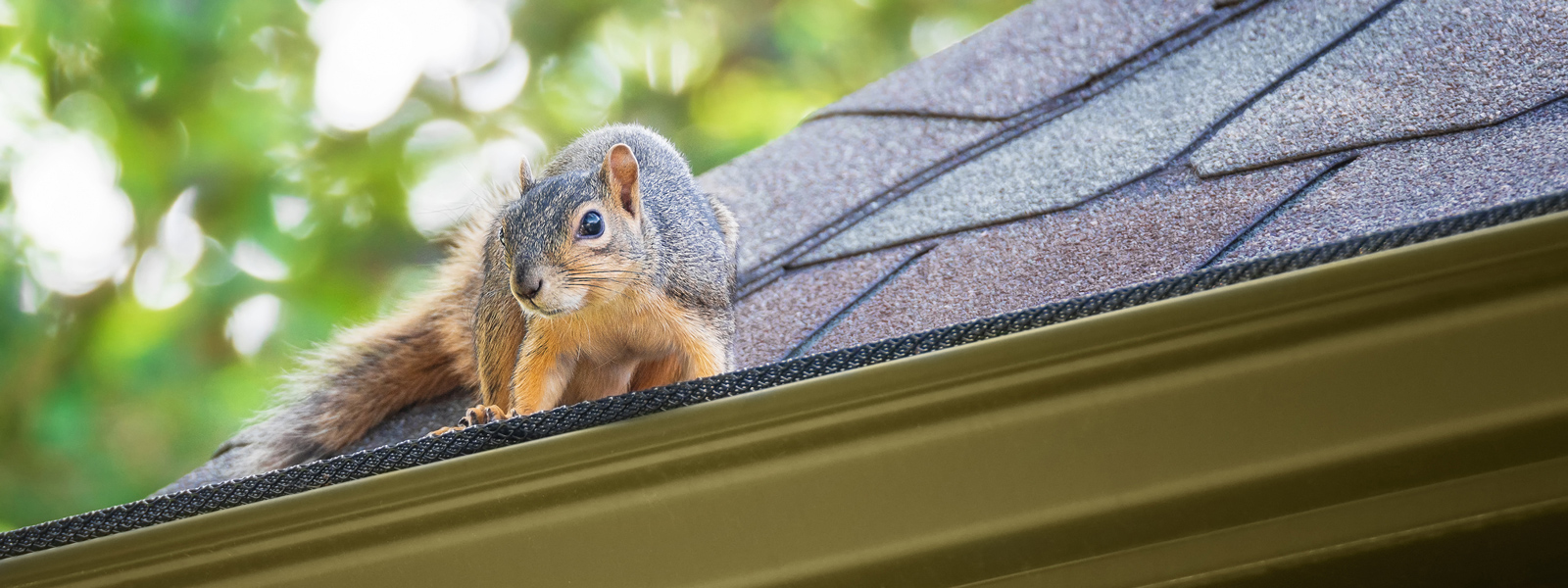Humane Rodent and Dead Animal Removal: Local Experts Near You.

Humane Rodent and Dead Animal Removal: Local Experts Near You.
Quickly and discreetly remove rodents and dead animals from your home. Find a trusted professional near you.
If you are having a problem with a wild animal, please select your city/town in Tennessee from the map or list above. This Tennessee animal control directory lists the phone numbers of professional wildlife removal experts throughout Tennessee. These nuisance wildlife control operators deal with conflicts between people and wildlife such as squirrels living in an attic, or raccoons digging through the trash can. Call the licensed and insured professional listed here, and get the problem taken care of once and for all.
There are many Tennessee pest control companies, but most of them treat for insect problems, and have little experience dealing with wild animals. Our specially trained technicians have the specific knowledge and equipment necessary for Tennessee wildlife management. We are not extermination companies, we are professional Tennessee trappers of wildlife. We are humane, and do a complete job - everything from animal damage repairs to biohazard waste cleanup.
Our Tennessee animal control experts can handle many wildlife issues. Examples include Tennessee bat control and removal. It takes an experienced pro to safely and legally remove a colony of bats. The same goes for bird control, such as roosting pigeons. We know all the species of Tennessee snakes, and can safely remove them. We most commonly deal with animals in the home, such as rats or mice in the attic, or raccoons in the chimney. Select your area on the map above, and find a professional in your home town.
There are many Tennessee pest control companies, but most of them treat for insect problems, and have little experience dealing with wild animals. Our specially trained technicians have the specific knowledge and equipment necessary for Tennessee wildlife management. We are not extermination companies, we are professional Tennessee trappers of wildlife. We are humane, and do a complete job - everything from animal damage repairs to biohazard waste cleanup.
Our Tennessee animal control experts can handle many wildlife issues. Examples include Tennessee bat control and removal. It takes an experienced pro to safely and legally remove a colony of bats. The same goes for bird control, such as roosting pigeons. We know all the species of Tennessee snakes, and can safely remove them. We most commonly deal with animals in the home, such as rats or mice in the attic, or raccoons in the chimney. Select your area on the map above, and find a professional in your home town.
Tennessee info: The state mammal is the common raccoon, believe it or not, one of the most common nuisance wildlife animals nationwide, right here in the Volunteer state!
If you need assistance with a domestic animal, such as a dog or a cat, you need to call your local Tennessee county animal services or SPCA for assistance. They can help you out with issues such as stray dogs, stray cats, dangerous animal complaints, pet adoption, bite reports, deceased pets, lost pets, and other issues. We have those numbers listed here for your convenience. If your city is not on our map, consult your local yellow pages or search for 'Animal Control' or 'SPCA' in your town.
If you need assistance with a domestic animal, such as a dog or a cat, you need to call your local Tennessee county animal services or SPCA for assistance. They can help you out with issues such as stray dogs, stray cats, dangerous animal complaints, pet adoption, bite reports, deceased pets, lost pets, and other issues. We have those numbers listed here for your convenience. If your city is not on our map, consult your local yellow pages or search for 'Animal Control' or 'SPCA' in your town.
Nashville, TN
28°F to 89°F
28°F to 89°F
- 7-spotted ladybug, European honeybee
- Tennessee cave salamander
- Largemouth bass, channel catfish
- Eastern box turtle
- Northern mockingbird, bobwhite quail
- Raccoon
Tennessee is usually assumed to be completely flat due to its central location in the country. This isn't the case, however. The eastern part of the state contains a section of the Appalachian Mountains, as well as the tallest peak in the range. Much of the landscape is flat farmland, but Tennessee has an abundance of trees throughout the landscape, particularly in what is known as the Blue Ridge section of the state. The summers are typically hot and humid, but higher elevations often show cooler temperatures in the winter accompanied by snow. Tornados do visit the state on an average of 15 per year, but fog tends to be the most persistent weather issue, especially in the Smokey Mountains.
The raccoon is the state mammal, and though Tennessee might recognize the cute critter as a representative, the warm weather and beautiful forests of this state only increase the chances people are going to have nuisance issues with the masked opportunist. Other nuisance animals that make their homes in Tennessee include snakes, rats, mice, squirrels, skunks, and porcupines.
Black bears in Tennessee can grow to be upwards of 500 pounds. They are the most common predator seen by hikers and campers, though there are other large predators in the state. Cougars and bobcats are the largest of the feline species present, and these cats are often bolder than their cousins in other regions of the country. The Tennessee park service warns campers about cougars and bobcats loitering around campsites. Coyotes are a presence in every area of the state, and red wolves were reintroduced into the region back in the early 1990's.
Known as the salamander capital of the world, the Smokey Mountain National Park has over 30 different species of salamanders in five different families, making it the most diverse population of such creatures in the world.
Tennessee also has an issue with armadillos. These animals, which can carry leprosy, are often hunted for food. They are docile and quiet, but they can do considerable damage to a yard overnight. Beavers and muskrats also can be problematic in Tennessee. With ample valleys and mountain streams, these semi-aquatic animals make their homes by damming up water and creating floods.
The raccoon is the state mammal, and though Tennessee might recognize the cute critter as a representative, the warm weather and beautiful forests of this state only increase the chances people are going to have nuisance issues with the masked opportunist. Other nuisance animals that make their homes in Tennessee include snakes, rats, mice, squirrels, skunks, and porcupines.
Black bears in Tennessee can grow to be upwards of 500 pounds. They are the most common predator seen by hikers and campers, though there are other large predators in the state. Cougars and bobcats are the largest of the feline species present, and these cats are often bolder than their cousins in other regions of the country. The Tennessee park service warns campers about cougars and bobcats loitering around campsites. Coyotes are a presence in every area of the state, and red wolves were reintroduced into the region back in the early 1990's.
Known as the salamander capital of the world, the Smokey Mountain National Park has over 30 different species of salamanders in five different families, making it the most diverse population of such creatures in the world.
Tennessee also has an issue with armadillos. These animals, which can carry leprosy, are often hunted for food. They are docile and quiet, but they can do considerable damage to a yard overnight. Beavers and muskrats also can be problematic in Tennessee. With ample valleys and mountain streams, these semi-aquatic animals make their homes by damming up water and creating floods.
Tennessee Wildlife Invading Homes: A Growing Concern
Tennessee's landscape and climate make it an ideal habitat for a wide variety of wildlife. Unfortunately, this can also lead to problems for homeowners as animals seek shelter and food in residential areas.
As the human population continues to expand, encounters with wildlife are becoming increasingly common across the United States. One of the most frustrating and sometimes dangerous issues for homeowners is when animals find their way inside.
One of the most common culprits is the raccoon. These intelligent and adaptable creatures are skilled at finding ways into homes through small openings in roofs, chimneys, or vents. Once inside, they can cause damage to insulation, wiring, and furniture.
The specific types of wildlife that may invade homes vary depending on the region, but some common culprits in Tennessee include:
To prevent wildlife from entering your home, consider the following:
If you have a wildlife infestation, it's important to contact a professional wildlife removal service. They have the experience and equipment to safely and humanely remove animals from your home and prevent future infestations.
By taking these steps, you can help protect your home and property from wildlife damage while also ensuring the safety of both humans and animals
As the human population continues to expand, encounters with wildlife are becoming increasingly common across the United States. One of the most frustrating and sometimes dangerous issues for homeowners is when animals find their way inside.
One of the most common culprits is the raccoon. These intelligent and adaptable creatures are skilled at finding ways into homes through small openings in roofs, chimneys, or vents. Once inside, they can cause damage to insulation, wiring, and furniture.
The specific types of wildlife that may invade homes vary depending on the region, but some common culprits in Tennessee include:
- Opossums: These nocturnal marsupials can squeeze through surprisingly small holes.
- Squirrels: Both ground squirrels and tree squirrels can cause damage to homes and gardens.
- Bats: Bats may enter through small gaps in the roof or walls, potentially carrying diseases.
- Rodents: Rats and mice can squeeze through tiny openings and contaminate food.
To prevent wildlife from entering your home, consider the following:
- Seal up entry points: Inspect your home for any gaps or cracks in the exterior and seal them with caulk or metal flashing.
- Install screens: Use screens on windows and vents to deter flying animals.
- Remove attractants: Keep garbage, pet food, and bird feeders away from your home to avoid attracting wildlife.
If you have a wildlife infestation, it's important to contact a professional wildlife removal service. They have the experience and equipment to safely and humanely remove animals from your home and prevent future infestations.
By taking these steps, you can help protect your home and property from wildlife damage while also ensuring the safety of both humans and animals
